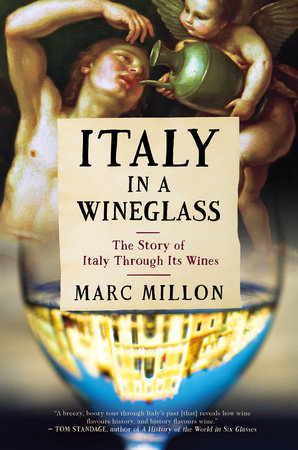TEACHING GUIDE
DISCUSSION AND WRITING1. How important was the role of wine to the ancient Greeks and what did it represent? How did theRomans influence wine production not just in Italy but across Europe? Can the great wines of todayever compare to the grands crus of the ancient world? And do any wines being produced today approach in style as well as quality the wines of the ancient world?
2. Which wines from the ancient world would you most like to try and why?
3. What are some of the traditions of wine making or wine drinking from the distant past that remainimportant today?
4. Without Christianity, could wine production have survived? Why were monks and monasteries socritical to furthering knowledge of viticulture and winemaking?
5. The mezzadria was a system of land tenure that survived for 800 years. It was only phased out asrecently as the 1970s. Why did this system of sharecropping last for so long and what were thebenefits for both parties? What are some of the positive changes that resulted following its demise?
6. What is campanilismo and how does this manifest itself in Italians’ approach to their enjoyment oflocal wine and food?
7. What are examples of wines being influenced by trade or migration from other places?
8. About 60% of all Italian wines are produced in cooperative wineries. Some of these wines are todaywinning the highest awards and accolades. Additionally, many other sectors in Italy are based oncooperative ideals, from banking to retail, and across many agricultural sectors, making Italy one ofthe most cooperative countries in the world. Is there possibly something inherent in the Italiannational character that makes this a country where cooperation is as valid and as important ascompetition?
9. How has the traditional role of women evolved since the 1970s and how is this reflected in the wineindustry? Is enough being done to provide equal opportunities for women in the wine industry?
10. Climate change is clearly affecting wine and wine making, as record temperatures continue to be setand previously ‘normal’ patterns of weather have been disrupted, sometimes even turned on theirhead. How can wine producers adapt to climate change and what are some of the challenges thatthey will have to deal with in the immediate and coming decades?
11. Italy is at once one of the most ancient wine producing countries in the world, yet at the same time,one of the newest. What are some of the historic wine regions that have re-emerged in recentdecades? Will more as yet little known areas emerge to be rediscovered in the coming years anddecades?
12. Since man first mastered the art of making earthenware vessels capable of holding liquids, wineproduction has been linked to technology. What are some of the most important wine technologiesthat have transformed wine in recent decades?
13. Genetic editing, it seems, might be one way to help winegrowers deal with the increasing problem offungal vine maladies such as downy mildew. How concerned should we be that such genetictechnologies might be introduced into viticulture?

